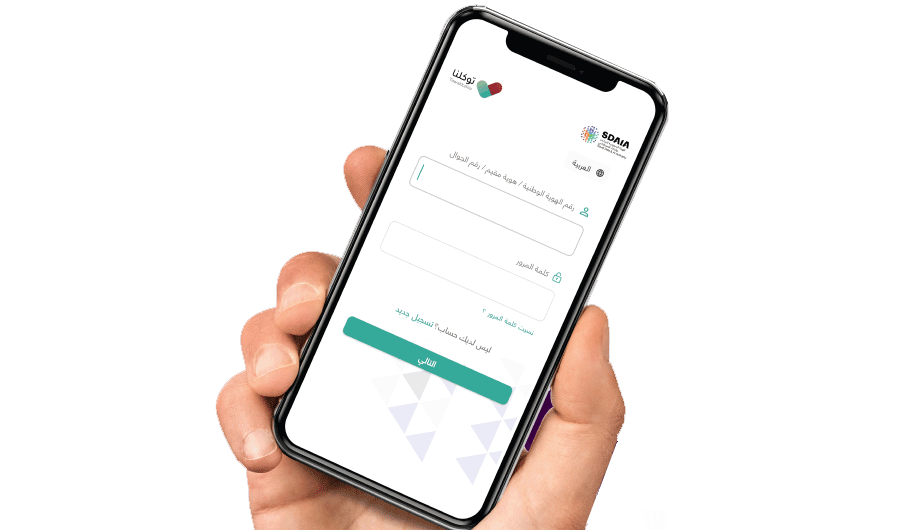RIYADH: Residents of Saudi Arabia without Absher accounts will now be able to use Tawakkalna services after the app underwent sweeping upgrades to accommodate expatriates without legal status.
The Saudi Authority for Data and Artificial Intelligence released the update which lets expats sign up using the mobile number identification service, allowing those currently facing issues with their iqama (residence permits) or other issues to sign up for Absher.
The update also allows users to update their mobile numbers.
With the app now required for anyone seeking to gain entry into shops, restaurants, and public places, the move is expected to ease many of the issues that have arisen since the new rule took effect earlier this year.
Meanwhile, precautions to curb the spread of the coronavirus disease (COVID-19) are ongoing, with intense field inspections continuing to make their rounds in commercial centers and restaurants, ensuring that visitors adhere to the safety and precautionary measures issued by the Kingdom’s relevant authorities.
The Ministry of Health announced 382 new cases on Saturday, bringing the Kingdom’s case total to 384,653.
The Riyadh region had the highest number of new cases, standing at 172. This was followed by Eastern Province at 69 and the Makkah region at 58. The Jazan, Najran, and Baha regions had three each.
Of the above cases, the ministry estimates that there are currently 3,916 active cases, 587 of them critical.
The number of new recoveries announced was 271, raising the recovery tally to 374,135. Saudi Arabia’s recovery rate has declined to 97.26 percent.
With the six deaths announced, the Kingdom’s total death toll is at 6,602.
FASTFACTS
384,653 Total cases
374,135 Recoveries
6,602 Deaths
As far as vaccination, the Kingdom has so far administered approximately 3 million vaccines, with over 2.96 million Saudis residents having received at least one dose. The Kingdom is vaccinating at a rate of 125,212 vaccines each day.
The total number of PCR tests conducted in the Kingdom stands at 14,585,281, with 37,402 of them being carried out in the past 24 hours.
Health clinics in the Kingdom, set up by the ministry as testing hubs and treatment centers, have dealt with hundreds of thousands of people throughout the country since the outbreak of the pandemic.
Among the testing hubs, Taakad (make sure) centers provide COVID-19 tests for those who show no or mild symptoms, or who believe they have come into contact with an infected individual.
Tetamman (rest assured) clinics offer treatment and advice to those with virus symptoms, such as fever, loss of taste and smell, and breathing difficulties.
Appointments for either service can be made through the Sehhaty app.




























